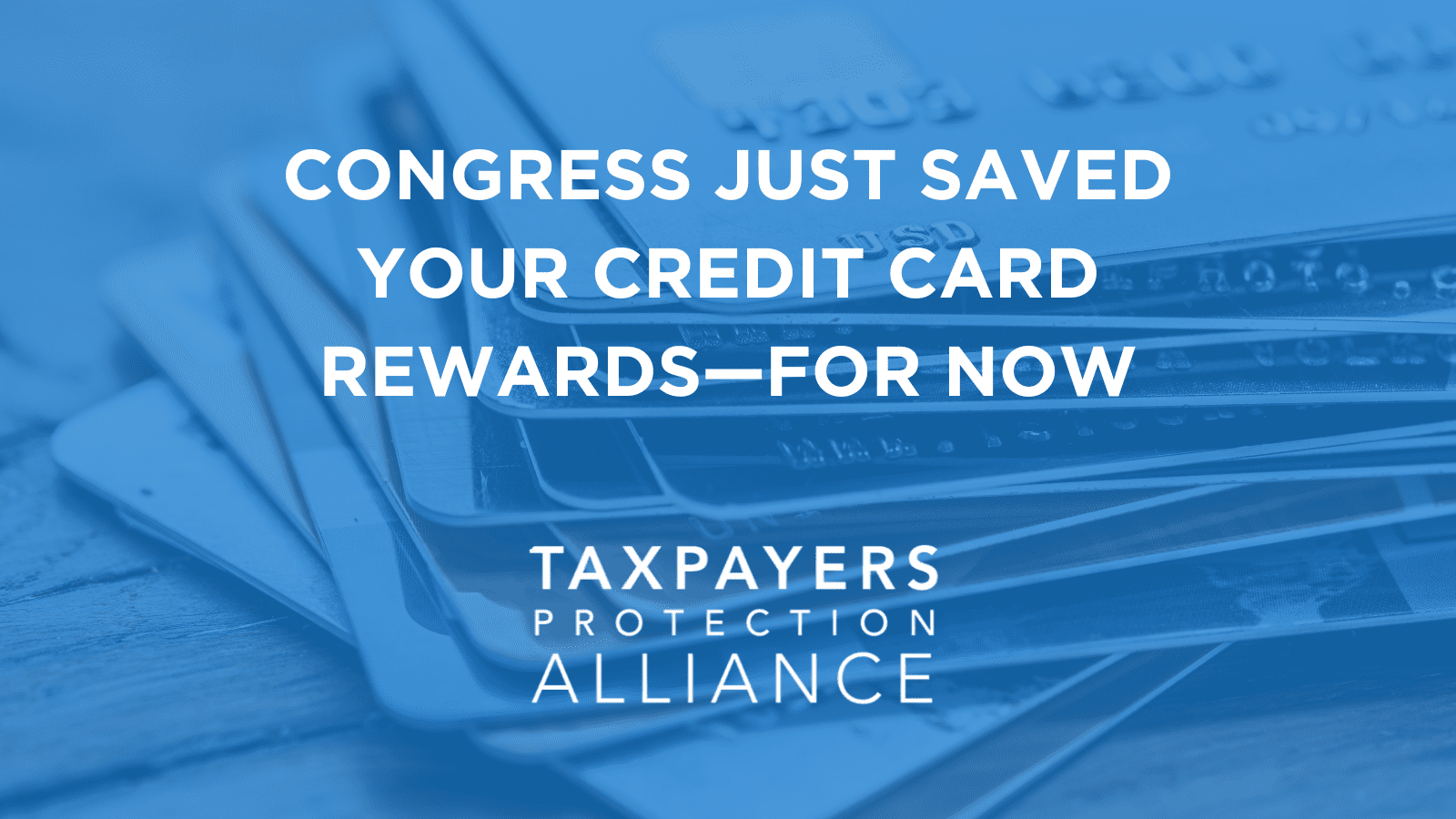
Congress Gave Credit Card Rewards a Lifeline—But the Fight Isn’t Over
Taxpayers Protection Alliance
July 7, 2025
Sens. Dick Durbin (D-Ill.) and Roger Marshall (R-Kan.) just failed—again—in their bid to ram through the Credit Card Competition Act, a sweeping regulatory proposal that would overhaul the U.S. credit card system to resemble Europe’s heavy-handed financial regime. Their latest attempt to sneak the measure into a stablecoin bill collapsed under scrutiny, marking yet another setback for legislation that critics say would harm consumers, weaken data security, and empower retail giants.
This outcome is welcome but unsurprising. The bill is wildly unpopular with consumers—for good reason. As written, it’s a thinly veiled giveaway to big-box retailers at the expense of virtually everyone else. Its sponsors claim it would inject competition into a noncompetitive market.
Senate leadership clearly got the message. Americans don’t want to fix something that isn’t broken.
In reality, the CCCA would allow retailers to continue accepting name-brand credit cards while processing payments through lesser-known networks—all without consumer knowledge or consent. Lawmakers should stand firm against any future efforts to resurrect this awful proposal.
The central premise of the bill—that the credit card market lacks competition—is unfounded. As of 2025, 152 companies in the United States issue credit cards. Between 2020 and 2025, market entry has grown at an average annual rate of 8.1%. This kind of steady growth does not indicate a broken market, but rather a dynamic and competitive system that continues to serve consumers well.
If passed, the CCCA would jeopardize that progress. Fraud rates, already on the rise, would skyrocket. Unvetted payment processors would be handed vast troves of sensitive consumer data. The only beneficiaries of using these cheaper alternatives are the retailers, who lack a vested interest in cardholder safety. Meanwhile, smaller institutions—including community banks and credit unions—would see revenue streams dry up.
This op-ed was originally published in The Blaze here.
